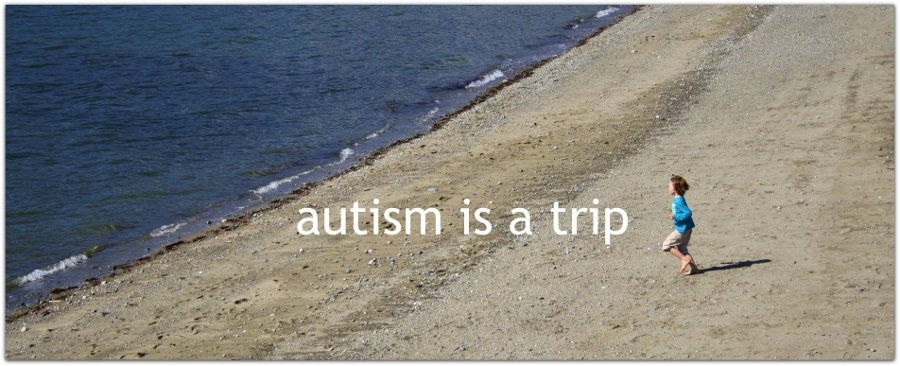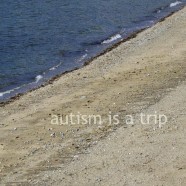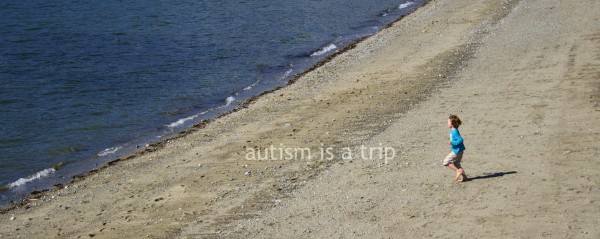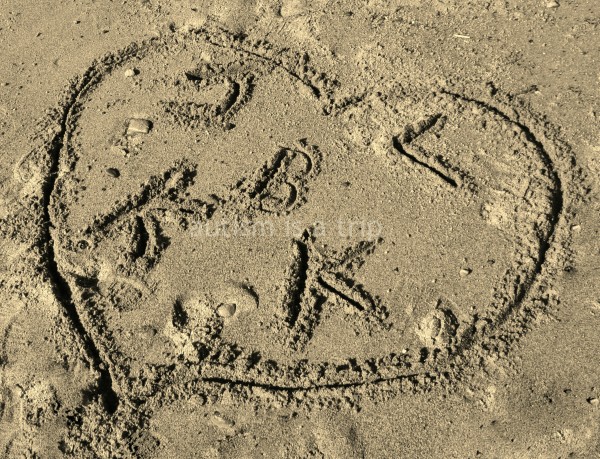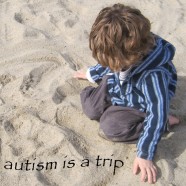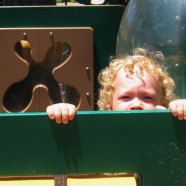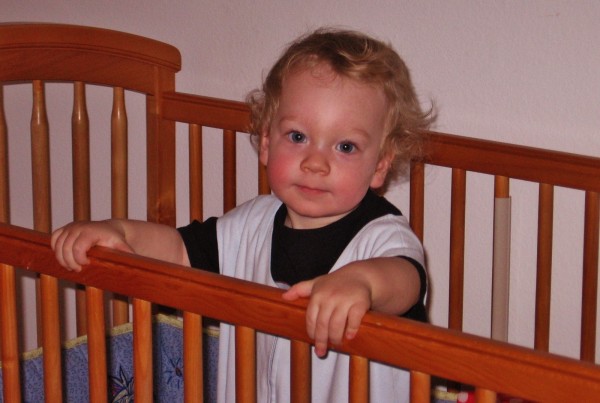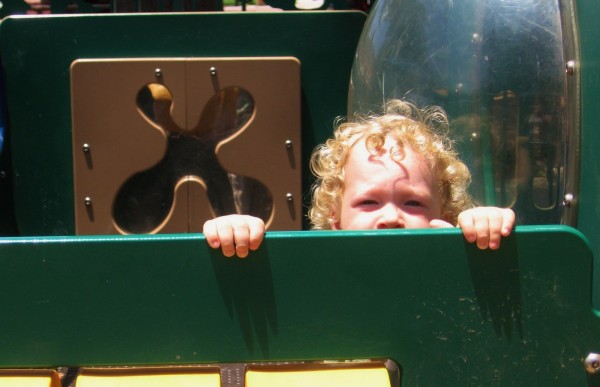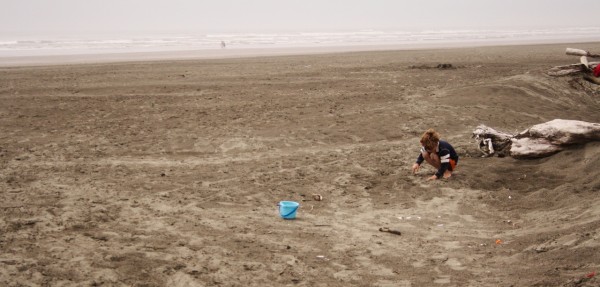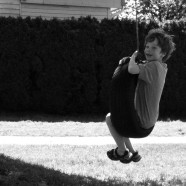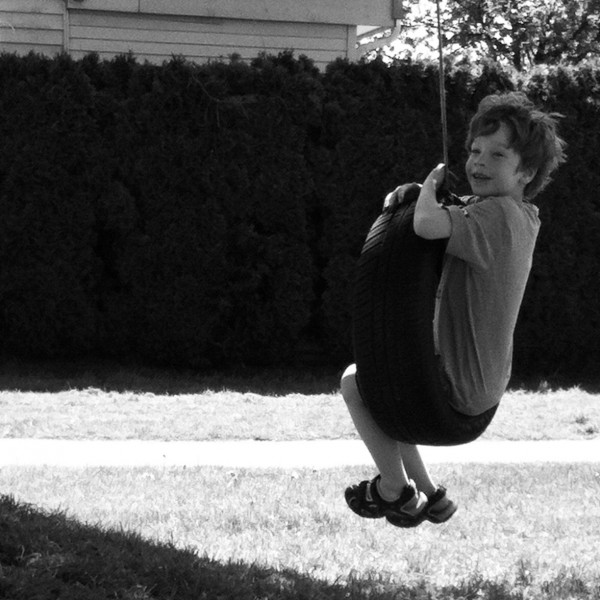The Missing Pieces
There are missing pieces in the autism community today. Beautiful, tragic pieces named Mikaela, Owen and Drew.
So much has been said and written about Mikaela, yet there is so much more that needs to be said. To be screamed. To be cried out into the night.
Our babies are not safe.
We do what we can. We install extra locks, we put up barricades, we install alarms. We put up signs and rub temporary tattoos on little arms and put ID tags on shoes. We tell everyone entrusted with their care to be aware, be cautious, be vigilant.
But we know, at the end of the day, that our children cannot be locked away in a safe room forever. They cannot be grasped by the wrist or strapped into their seats at all times.
Our children, like all children, need to experience the world first-hand. They can’t do that from behind bars.
To do this, we have to trust in so many things. We have to trust that the people watching them will not look away. We have to trust that the child remembers – even a tiny bit – about safety. We have to trust in the unknown.
We also have to give ourselves a break. Parenting and giving care to an autistic individual can be exhausting and exhilarating. It can eat away at you in the same moment it’s filling you with the most joy. It can raise you up, and beat you down.
And sometimes things happen.
Mikaela Lynch’s family will never forget the moment she disappeared. Nobody made a mistake, nobody dropped the ball. Mikaela simply found a weak spot in her web of safety and took her chance to run free.
Like children will, she headed for water. Like many autistic children, she simply didn’t understand the dangers. The danger of a nine-year-old girl out in the world, unclothed, on her own. The danger of water when you cannot swim.
Children will always find a way around the borders and fences we construct for them. It’s our job to provide guidance and limits, it’s theirs to bust through them. It’s a part of learning and growing. So what happens when that curious child never grows out of the desire to run? What do we do when the guidance and limits fail? Because sometimes, they will fail. We are only human.
Abducted children get an Amber Alert, a barrage of information that disseminates quickly via television, radio, emails, texts, lottery tickets, Twitter, Facebook, SigAlert signs over highways, and more. There is no time to lose when a child is abducted, so the system acts as quickly as possible.
While I understand that sending out too many Amber Alerts has the potential to desensitize the public, there needs to be an equivalent alert for autistic children. Wandering, running, bolting autistic children are at risk every bit as much as if they were abducted. There are just too many variables when it comes to a child who may not even understand the concept of danger and safety.
I can’t say that the sad stories would have ended differently if there had been an alert. But the success of the Amber Alert speaks for itself. Anything is worth doing if it saves just one life.
We talk a lot about autism awareness, and this is what it comes down to. Let the public be aware. Aware of what a child with autism will do. Aware of the inherent dangers. Aware enough to step in and help.
They can’t, unless we tell them. Alert them.
We simply can’t keep losing our children like this. Not when something so simple may have saved them.
I want to change the system. For my child, for your child, for Mikaela. And Owen. And Drew.
To learn more about what you can do to help prevent wandering incidents and deaths within the autism community, please visit The AWAARE Collaboration.
This post is a part of “An Outpouring of Love for The Mikaela Lynch Family.” To read other entries, please visit this site.
Share this: Twitter | StumbleUpon | Facebook | digg | reddit | eMail Read MoreAt The Heart of Darkness
I am a generally happy person. I try to find the humour and joy in everything, even when it would appear that there is none to be had.
It’s been difficult to find my smile lately.
I should elaborate. I have many reasons to smile daily, all day long. I have four amazing children, my beautiful, beautiful boys, whose every breath is reason to be joyous. I smile, but there is something lurking behind it. Something dark and sad, something I’m trying my best to understand.
I am anxious. I am depressed.
I have suffered from Post-Partum Depression (PPD) after each of my children’s births, in increasing severity. My youngest son was born in October and this time it came over me like a tidal wave, the worst yet. Many people and medications support me, but the dark cloud persists. I feel like I’m going through the motions, watching my happy life from the outside.
I’m trying to put my finger on it. Baby blues? Could still be, my child is only six months old. Four children seven years and younger? Of course. There is stress in wrangling them here and there, getting them into bed, entertaining them, feeding them. They eat a lot. Seriously, a lot. But all of those things are part and parcel with motherhood. All of those things are expected. If I didn’t think I could handle this job, I wouldn’t have applied, and kept applying. My entire life brought me to this point, and I wouldn’t change a thing.
(Ok, in a perfect world there are things in my past I would have done a whole lot different, but we don’t get do-overs. It’s easier to accept that the decisions I’ve made in life, for good or bad, have created my life today. And I kind of love my life today.)
Autism? Autism is a huge part of our lives. It’s pervasive, and up to now, we’ve made it work. I realize, however, that things are changing. It’s getting more difficult. Jack is getting older. He’s getting stronger and smarter. A lot smarter. And he’s busting through all of the tools I’ve used to help him – and myself – cope. So we’re at a plateau of sorts. Or maybe diverging paths. Jack is heading into his future, and I am scrambling, trying to keep up with him. Trying to get us back in sync.
I’m flailing.
Another entity has also invited itself into our family, or is trying to. ADHD*. We are having one of our sons assessed, and I’ll be surprised if that’s not the outcome. It’ll be a few more months and a few more doctor’s appointments and a few more assessments until we know for certain, but I want to know for certain. I don’t like ambiguity, especially in my home, with my children. I am staring down the barrel of this the same way I did with autism. If my child has a challenge, I want to know what it is so we can get going. Get a handle on it. Get ahead of it. Early intervention is the best solution in any situation involving a child. Involving anyone, honestly.
If that were the only issue, I would be fine. But no, ADHD didn’t want to stop there. In the process of understanding what’s happening with my son, I started realizing something about myself. The doctor we saw last week asked me something that threw me for a loop. After going over our family’s medical history, she asked a simple question. One I hadn’t ever heard put in quite this manner.
“Does his behaviour resemble anyone in your family?”
I looked at her, stunned. The sky opened up, the clouds parted, a window of clarity descended upon me.
Or maybe I blinked.
Yes, in fact, it did resemble someone in my family.
Me.
Insert montage of snapshots of my life: my elementary school report cards describing in detail how I couldn’t sit still, talked too much, couldn’t focus; a trip to the doctor as a small child, with the word “hyperkinesis” ringing in my mind; family members telling me I talked too much, sit still, calm down. I was obsessed with candy (the bad kind, not the kind I give my kids now). I stole money from my mother’s wallet and my father’s bureau. I couldn’t handle not getting what I wanted, and screamed and banged my head when I couldn’t deal. Punishments didn’t mean a lot to me, as I was somehow always able to adapt. I lived in constant anxiety about one thing or another. My main recollection of myself as a child? Obnoxious.
That is how I always thought of myself, until one day in high school I looked in the mirror and decided I wasn’t going to be that person anymore. I embarked on a long journey of figuring it all out. Teaching myself how to take turns in conversations and not only talk about me and mine. Working to tune out the sensory overloads that hurt my head. Putting myself into social situations and act accordingly, even though I was deathly afraid. Trying, desperately, to become a “me” I could look in the mirror and love.
That’s a lot to carry around.
I pulled out those report cards not too long ago, and read them all in detail. And I cried. I cried for the little girl who never really understood why she was in trouble. Who didn’t know why she did the things she did, but couldn’t stop herself from doing them again. Who desperately wanted to fit in somewhere, anywhere, but just… couldn’t.
And I cried for my children. Because I don’t want them to ever feel what I felt. I want to shelter them from the awkwardness, the self-consciousness, the underlying feeling that they don’t belong.
I want my sons to know what is within them that makes them do things differently sometimes, and to understand not only how to manage and cope, but to know and believe that they are perfect exactly the way they were born.**
I’m not under the illusion that I can save my children every heartbreak, every hurt. Part of growing up is experiencing the things that will make them into strong men, whole men. Heartbreak and hurt are a part of the deal as much as love and fulfillment. Yin and yang.
If I can do anything to keep my children from feeling the confusion I had, I will. If I can tell them every single day that they are beautiful and confident and awesome just the way they are, they might believe it. I can try. I have to try.
In the moment when the doctor asked that simple question, I realized that my child is very much like me. He’s the only one of our four boys who really looks like me (the other three are clones of my husband), and now I know he shares more than my features.
The most important thing I took out of that meeting was the very real possibility that if my son has ADHD, I most likely have it, too. It’s genetic, so it’s entirely possible. The most damning evidence, though, is that word I remember so vividly from long ago. Hyperkinesis. I’ve known it all of my life, but never really understood what it meant for me. I know now that hyperkinesis is what they called ADHD before it was ADHD.
I know that after my mother took me to the doctor and we learned that word, she put me on the Feingold Diet and cut out all artificial colours and flavours. I don’t remember anything else, though. No medications, no more doctor’s visits. No more addressing the elephant in the room.
Me.
Sadly, my mother has passed away, so I can’t ask her all the questions that are running around in my brain. My father has told me as much as he recalls, but there’s more. I’ve been questioning myself since Jack was diagnosed almost five years ago, and now it all seems to be making sense.
I want to know more. What can I do to get more focus? Would medication help? Is the medication I’m on making it worse? I want to banish the ambiguity.
So, I think I’ve discovered the source of the darkness: I am overwhelmed. I have several very large balls in the air, and I’m afraid if I drop them, I’ll fail my family. Autism. ADHD in my child. ADHD in myself. The anxiety. The unknown.
I am strong, I have been through worse. I just want answers, and I want clarity.
I want to help my son navigate his life with autism.
I want to help my other son cope with whatever is challenging him.
I want to get ahold of myself so I can live my life free of this weight that’s pressing me down.
I want to smile.
*****************************************************************
*There are some who may hear ADHD and think, “Oh, that’s not so bad, it’s not as bad as autism.” No, it isn’t, it’s different. It’s still a challenge, both to the individual who has it and the family that supports them. It’s work, on top of lots of other work. Not impossible, but difficult nontheless.
**I feel it’s important to note that I do not blame my parents in any way for the way I felt, or the way they handled me. This was forty years ago, and an entirely different world. If anything, my experiences have informed me well to guide my own children.
Share this: Twitter | StumbleUpon | Facebook | digg | reddit | eMail Read MoreOn the Defense
I’ve been on a kind of hiatus for a while now, while I was pregnant and had my fourth child. A fourth boy. I’ve been ready to come back for a few weeks, but got caught up in the holidays and boy #3’s birthday and more holidays and life. I have stories for you, tales of Jack and his new brother, Jack and his fascination with horrible weather events and historical vehicular disasters (both air- and sea-borne), Jack and his new love of making gifts for everyone. Stories about how we need to find an ABA or someone who can help me now that Jack’s older, anecdotes about how Jack is doing in school.
Life has, as is its wont, interceded in my plans.
On Friday, twenty children died. Twenty mamas lost their babies. Twenty families were wrenched apart at the very time of year we, regardless of religion, tend to gather our loved ones closest. Those charged with keeping them safe died as well, in the course of doing that very job. There are older mamas missing babies tonight, too.
Why should this affect me, other than the fact that two of my children are the same age as those who were lost? Other than the obvious devastation one feels when something horrifying transpires? Other than the unbearable sadness at the loss of innocents? One word.
Autism.
There have been rumours and speculation that the individual who destroyed twenty-seven lives is on the spectrum. Nothing concrete, but enough for the mainstream and social media to grasp in their hot little feeds and run with. I have seen comments on my friends’ posts about how “the shooter has autism and that’s why”. I watched Piers Morgan, on CNN, say that people with Asperger’s are “missing a piece of their brain” and can’t feel sympathy. I have felt the bile rising in my throat for three days.
Everything I’ve worked for with my son is teetering on a fence now. This situation could go either way. People will come to their senses and understand that ASD is not the cause of a massacre, or they won’t, and I fear for what happens then. I’m girding myself, because people have notoriously and stubbornly, as evidenced by our last election, refused to be sensible.
Why should this bother me? My child doesn’t have rage issues. My child would never do this. My child isn’t in danger.
I’m sure there are many parents out there tonight who thought the same things and were wrong.
I don’t know what the future holds for my child, or how his ASD is going to affect him in five or ten or twenty years. I can only hope that with early intervention and constant, loving support, he’ll be a contributing member of society. A happy person with nothing more on his plate than he can handle, and the sense to reach out for help when he can’t.
What I do know is that all of a sudden, instead of telling people that my son has autism with a sense of pride (because I am damned proud of my son), I am defensive. I feel the need to explain. He’s high functioning. He’s really empathetic and loving. He’s not that person.
I don’t want to be defensive about my son, and I don’t want him to ever feel defensive about himself. Especially not because some other person who may or may not be on the spectrum had more than he could handle and made some seriously bad decisions. I want him to be as proud of himself as I am, always.
Someday I will tell him about the babies who were lost, and why. And we will talk about it, and we will probably not be able to understand, ever. And I will continue to tell him that he is loved and supported, even if he’s angry. Even if he’s angry with me.
Mental health support is vital. The village cannot survive without it. I’m doing my part.
Namaste.
Share this: Twitter | StumbleUpon | Facebook | digg | reddit | eMail Read MoreSo Much in The Silence
I was recently reminded that there was a time that my child could not speak. He could not answer a question, he could not share something that excited him, he could not tell me where it hurt.
That hurt. A lot.
To know your child is in distress and to not know why, or how to fix it, is the pinnacle of parental frustration and anxiety.
I recall looking at him, two years old, standing in his crib to greet me in the morning, wondering when he’d say “hi, mama!” Thinking that one day maybe he’d just start speaking in full sentences, having had no need for baby talk. Not ever, not once, realizing something bigger than a speech delay might be at play in our home.
There is a photo I have of Jack that absolutely breaks my heart every time I see it now. Now that I “know”. He was eighteen months old, and not feeling well. I was taking photos of his pout, because I do things like that. I have photos of all of my children in various states of anger, sadness, happiness and joy, because I don’t ever want to forget even a second of their lives.
I also want a nice, big arsenal for the teenage years.
The photo is gorgeous. He was a beautiful child (still is), with rosy cheeks and big, curly blonde hair.
What I didn’t know, is that not only did he not feel well, he actually had strep. At one o’clock that same evening/morning, David had to rush him to the hospital because his 104-degree fever would not come down, no matter what we tried.
What I didn’t know, is that his throat hurt. He was in pain, and had been, apparently, for days. He had been sleeping a lot, but not complaining in any way.
He couldn’t, actually. He didn’t know how.
That event marked a turning point in our lives, where we went from “Jack is just independent and will speak when he’s ready” to “maybe we should be looking into this a little bit more”.
We spoke with his pediatrician about it at our follow-up visit, and were shushed and placated, and pushed out the door with the advice to not to fret about it. Lots of kids don’t have language until later. Start worrying when he’s two and a half. Almost a year away.
A family member had been through Early Intervention with their child, and suggested we give them a call. What could it hurt? It’s free, and maybe they could help. We went back and forth about whether or not to do it, and finally decided to make the call. Jack was twenty months.
He was assessed by the full team of not only a speech therapist, but a social worker and occupational therapist within two months, and we were assigned benefits for him within four. We were overwhelmed with what they had offered: five days a week in a collaborative preschool, home-based speech therapy two hours a week, clinic-based occupational therapy two hours a week, and various other interventions we decided not to pursue.
As I’ve mentioned before, speech therapy “unlocked” him. Jack was speaking within a month of his therapy, and within a year, he was well on his way to being the chatterbox he is today.
But why the other offerings? Why so much for a little boy who simply had trouble speaking?
As the months went by and the reports started coming in, it all started to make sense.
Actually, that’s not true. They confused us. Why would a speech delay cause upper body weakness? Why were both his fine and gross motor functions being called into question? Why did there suddenly seem to be so much more to be concerned about, just as he was finding his voice?
Well, we know now. That story has been told.
Sometimes, though, I need to be reminded of those days. Sometimes when I’m dying for quiet and my house is just so loud. Sometimes when Jack is asking endless questions about nebulae and how stars are born and just how big is Jupiter in relation to Betelgeuse anyway, when all I want is to shut off his light so I can go watch TV.
Sometimes, I need to remember that when Jack speaks too much, it’s not a lot different than when he didn’t speak at all.
He is now able to tell me when his throat hurts, or he’s bleeding or he needs some alone time. He can tell me when he’s happy and had a wonderful day and can’t wait for our weekend plans. He can tell me he loves me, which I longed to hear for so, so long.
He cannot, though, tell me that he’s stressed. He cannot tell me when he’s had enough. He cannot tell me when the lights and sounds and noises and cacophony of the world have pushed him to his very limits. For those times, it’s still up to me to read his body language. To try and snap him out of the vacant looks and nonstop pacing. To bring him back.
To heal the little boy with blonde curls and rosy cheeks.
Jack never stops teaching me, even though I sometimes get caught up in the noise myself. He speaks now, but it’s so important to remember when he could not. He is still the same child, and he still needs me to guide him.
And, for now, to explain the finer points of the universe.
Share this: Twitter | StumbleUpon | Facebook | digg | reddit | eMail Read More
Vindication… and Obligation
It’s over. Our long journey for a Canadian autism diagnosis has ended, and we are victorious.
So why am I so tired?
We went to our family diagnosis and funding meeting this week, girding ourselves for any outcome. I wasn’t hiding my nerves well, so the wonderful doctor let us off the hook immediately. Jack is on the spectrum, he has ASD. We knew that, but there were no guarantees the team would agree. Thankfully, they did, and now Jack is eligible for all the support that Canada and the British Columbian government have to offer.*
After she presented the official diagnosis, we met with a case worker who explained the funding process, and where to go now. Unlike in California, where either the school district or the regional centers handled coordination of services, we will make most of the decisions ourselves. It’s a bit confusing, but I’m glad we have a lot of experience in the autism world to guide us.
We sat in the car afterward, letting it all sink in. I felt relief, I felt happiness… and I felt a weight bearing down on me. My husband and I looked at each other. We were both thinking the same thing.
Jack is special. Jack has always gotten exactly what he’s needed, and then some. But other children are special, too. Our monumental task is over, but our – my – biggest job is just beginning.
Since Jack was diagnosed, before even, he has had the full support of everyone charged with his care. We call him the “poster child for early intervention”, and it really is quite true. Every step of the way, he’s had exactly the therapy he’s needed, the support he’s required, and the attention he’s deserved. Here in BC, where his school has not yet received a penny for his support during the year and a half we’ve waited for his diagnosis, Jack has had a full-time special education assistant (SEA).** Even though we have occasionally had to wait, Jack still prevails in the end.
I know many, many families in the autism community, and their stories are all different. There are children who are lower functioning, there are children who are high functioning. There are children with asperger’s, and children with PDD. The spectrum is wide, and so are the services they’re receiving. I would love to say every child is getting exactly what they need, but that simply isn’t true.
I know children who are not supported in school, and children who have had to leave school because of it. I know children who need speech therapy or occupational therapy or sensory integration therapy, but linger on waitlists or are simply denied due to lack of funding. I know children who have waited years for an accurate diagnosis, without which they cannot even get on those waitlists.
I won’t say we’ve had an embarrassment of riches when it comes to Jack’s therapies, interventions and supports, as he’s needed and deserved every one. But that feeling lingers when I speak with parents so desperate for even a fraction of what we’ve had. It pulls at my heart and puts a fire in my gut.
The weight I feel is obligation. I cannot allow my fight to end with Jack. He is my child and it’s my duty to advocate for him, but someone needs to stand up and speak for those who are not as fortunate, for whatever reason. Autism is many things: daunting, confusing, challenging, and oftentimes inspiring. What autism need never be, though, is a tragedy. Every single child and individual on the spectrum deserves the chance to be the best they can possibly be, through therapies, interventions, supports, or whatever it takes. Every family touched by autism deserves to know they’re not alone on their journey.
Jack and I have completed this leg in our marathon, and we have every intention of winning the whole thing. We also intend to take as many with us as we are able. We can, and we will.
“You gain strength, courage and confidence by every experience in which you really stop to look fear in the face. You are able to say to yourself, ‘I have lived through this horror. I can take the next thing that comes along.’ You must do the thing you think you cannot do.”
― Eleanor Roosevelt,
**************************************
*Which isn’t a whole lot, honestly, but that’s another topic for another post.
**I was quite pleased to take in his diagnosis paperwork yesterday, which will now entitle his school to $18,000 a year specifically for his support.
Share this: Twitter | StumbleUpon | Facebook | digg | reddit | eMail Read More
